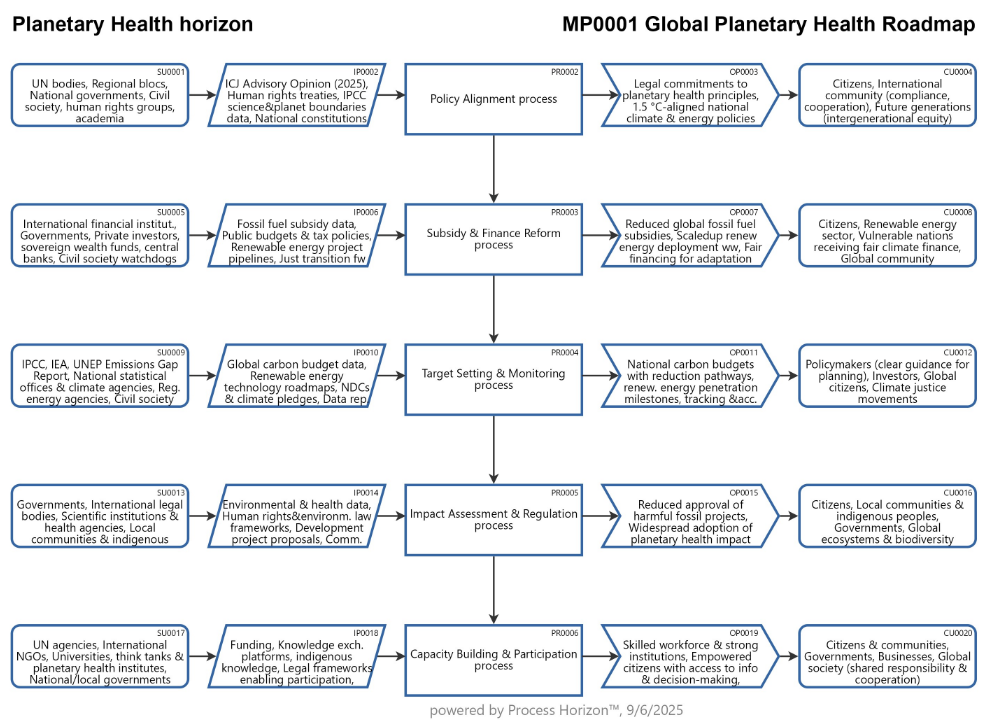Global Planetary Health Roadmap

On 23 July 2025 the International Court of Justice’s (ICJ) issued a landmark Advisory Opinion on “Obligations of States in respect of climate change.”
The SIPOC process map shows how a Planetary Health Roadmap could be operationalized globally, with each process reinforcing states’ legal and moral obligations under the ICJ Advisory Opinion and planetary health principles.
1. Policy Alignment
Embedding planetary health in law and aligning national policies with 1.5 °C
- Integrate the right to a clean and healthy environment into constitutions
- Align NDCs (Nationally Determined Contributions) with 1.5 °C pathways
- Mainstream planetary health across ministries (health, finance, energy, environment)
- Harmonize national policies with regional/global frameworks
2. Subsidy & Finance Reform
Ending fossil fuel subsidies and redirecting finance into renewables and just transition
- Phase out fossil fuel subsidies with clear timelines
- Reallocate finance into renewable energy and efficiency programs
- Mobilize climate finance for developing countries
- Incentivize private capital toward planetary health investments
3. Target Setting & Monitoring Carbon budgets, renewable energy targets, accountability systems
- Define national fair-share carbon budgets
- Establish global renewable energy benchmarks
- Implement transparent monitoring, reporting, verification (MRV) systems
- Use international review mechanisms for compliance
4. Impact Assessment & Regulation
Applying planetary health criteria to development projects and banning harmful fossil projects
- Require planetary health impact assessments for large-scale projects
- Ban fossil fuel projects inconsistent with 1.5 °C
- Prohibit extractive projects in ecologically critical zones (mangroves, coral reefs, forests)
- Strengthen regulatory enforcement and penalties
5. Capacity Building & Participation
Empowering communities, strengthening institutions, ensuring equitable transition
- Train policymakers, regulators, and civil society on planetary health frameworks
- Engage communities in co-designing transition strategies
- Build local institutional capacity for enforcement, monitoring, and reporting
- Promote global knowledge sharing and south-south cooperation
=> The ICJ confirmed that states have a legal duty under international and human rights law to regulate and ultimately phase out fossil fuel-related activities.
=> Failing to do so may constitute an internationally wrongful act, exposing states to legal consequences such as reparations.
=> The opinion strengthens the legal foundation for climate justice, especially for vulnerable nations, and signals a growing era of accountability even if enforcement remains a challenge.
Using the following link you can access this sandbox SIPOC model in the ProcessHorizon web app and adapt it to your needs (easy customizing) and export or print the automagically created visual AllinOne SIPOC map as a PDF document or share it with your peers: https://app.processhorizon.com/enterprises/zcxEwbW5XC9mp59LLSiuXJJ7/frontend

